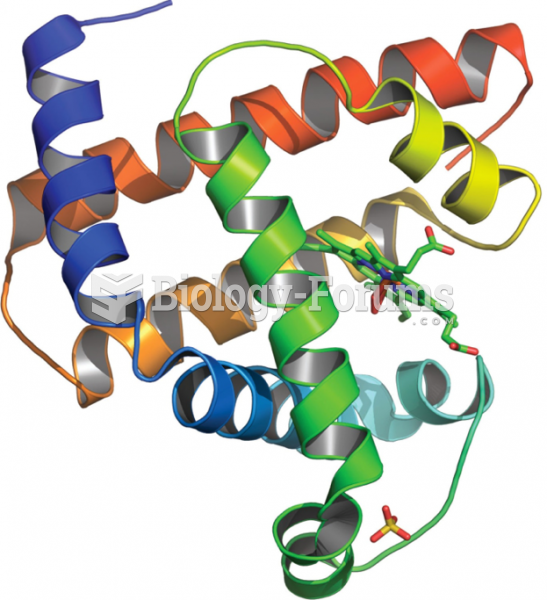|
|
|
The average human gut is home to perhaps 500 to 1,000 different species of bacteria.
When blood is exposed to air, it clots. Heparin allows the blood to come in direct contact with air without clotting.
There are over 65,000 known species of protozoa. About 10,000 species are parasitic.
Once thought to have neurofibromatosis, Joseph Merrick (also known as "the elephant man") is now, in retrospect, thought by clinical experts to have had Proteus syndrome. This endocrine disease causes continued and abnormal growth of the bones, muscles, skin, and so on and can become completely debilitating with severe deformities occurring anywhere on the body.
A strange skin disease referred to as Morgellons has occurred in the southern United States and in California. Symptoms include slowly healing sores, joint pain, persistent fatigue, and a sensation of things crawling through the skin. Another symptom is strange-looking, threadlike extrusions coming out of the skin.







